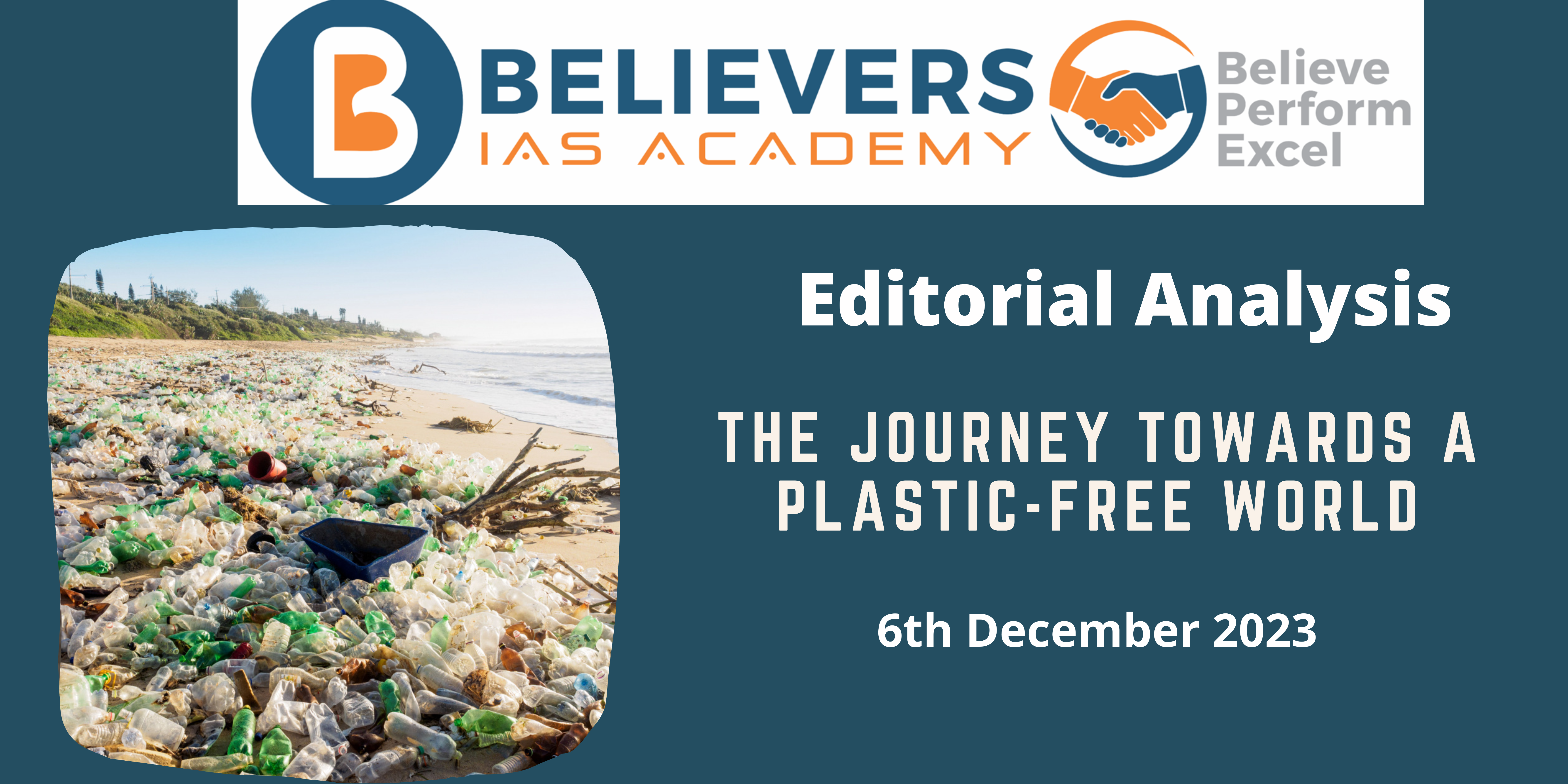The journey towards a plastic-free world
Context:
Exploring the ambitious journey toward a plastic-free world, the Intergovernmental Negotiating Committee (INC) convened under the United Nations Environment Programme.
- This analysis delves into the proceedings of the third round of negotiations held in Nairobi from November 13 to 19.
- The INC’s pivotal role in crafting an international legally binding instrument to combat plastic pollution globally, as mandated by the UN Environment Assembly Resolution 5/14, sets the stage for a comprehensive understanding of the challenges and intricacies involved.
Relevance:
GS-03 (Conservation)
Prelims:
Single- Use Plastic, Plastic Waste Management Rules 2016, CPCB, Environment protection Act 1986
Mains Question:
Evaluate the outcomes of the third round of negotiations conducted by the Intergovernmental Negotiating Committee (INC) under the United Nations Environment Programme, focusing on the development of an international legally binding instrument to address plastic pollution. (150 words)
Dimensions of the Article:
- Crafting a Binding Treaty
- Contentious Reduction in Plastic Production
- Financial Mechanism, Trade Restrictions and Rules of Procedure
Crafting a Binding Treaty:
- INC-3 aimed to shape a global plastics treaty by 2025, as mandated by UN Environment Assembly Resolution 5/14.
- The negotiations centered on the ‘zero draft’ text, reflecting options for core obligations and control measures.
- Despite challenges, INC-3 surpassed its predecessor by delving into substantive contents rather than procedural rules.
- The ‘zero draft,’ initially robust in its call for a legally binding treaty, faced challenges during negotiations. Member states, influenced by economic interests, diluted core obligations related to primary polymer production, chemicals of concern, and problematic plastics. Disagreements on the treaty’s objective and scope emerged, with a group advocating for economic considerations alongside environmental goals.
Contentious Reduction in Plastic Production:
- The reduction of primary polymer production emerged as a contentious issue due to its perceived impact on industry.
- Industry influence, evident in a significant increase in sector lobbyists, raised objections to discussing a reduction in plastic production, challenging the very scope of UNEA Resolution 5/14. The balance between environmental goals and economic interests became a focal point of debate.
Financial Mechanism, Trade Restrictions and Rules of Procedure:
- The financial mechanism, crucial for treaty implementation, faced divergence. Proposed options, including a plastic-pollution fee and limiting financial flow to high carbon footprint projects, met resistance from certain countries.
- Additionally, trade restrictions on polymers, chemicals, and plastic products encountered objections, with concerns about impinging on national freedom and sovereignty.
- The unresolved debate on rules of procedure from INC-2 persisted, hindering progress. The absence of a decision on voting procedures left negotiators vulnerable to objections from a bloc of countries with divergent interests.
- The role of the African group and Small-Island Developing States in advocating for strong binding provisions underscored the importance of diverse perspectives in treaty negotiations.
Way Forward:
- Despite the challenges faced during INC-3, the journey towards a plastic-free world demands continued efforts. The need for consensus on definitions, targets, and timelines remains crucial for future progress.
- Industry influence and opposing member states have surfaced as obstacles, emphasizing the delicate balance required between economic considerations and environmental imperatives.
- While INC-3 did not formally adopt the mandate for developing the first draft, the setback reinforces the urgency of addressing these challenges in preparation for INC-4. The international community must navigate the complexities to forge a resilient treaty that effectively addresses plastic pollution while respecting diverse national circumstances and capabilities.




